Harm of poor grounding of equipment
The term "grounding" is believed to be familiar to everyone, but it has not received much attention from people in daily testing and use. Even experienced technical engineers will make mistakes here. Let's take a closer look with everyone.
In most measurement test systems, the nature of grounding can be basically divided into four categories:
1. Electrical grounding: Originally the conductive connection between the circuit and the earth. However, in the electronic device manufacturing industry, the meaning of the word has been relaxed to a point or points used as a zero voltage reference;
2. Power ground: provide the return path of the current required by the instrument for operation;
3. Signal ground: reference point and return path of all signal currents;
4, shielding ground: usually the metal casing of the instrument and the shielding of the cable.
A good grounding system will reduce a lot of unnecessary troubles in the measurement. The normal use of the equipment must ensure good grounding. Good grounding has many purposes. It is the most safe and has the pursuit of circuit stability. The following points:
1. Ground the machine. In case of leakage, the instrument housing will not be charged and the use is safer.
2. Establish a zero voltage reference point or a loop path to the integrated signals for normal measurement purposes;
3. Good grounding can effectively shield the interference of electric and magnetic fields, including external interference to the instrument, interference of the instrument power supply to the measurement, and interference of the instrument to the outside.
In order to better grounding, special grounding terminals are often reserved in the manufacture of instrumentation to connect the protective ground wire.
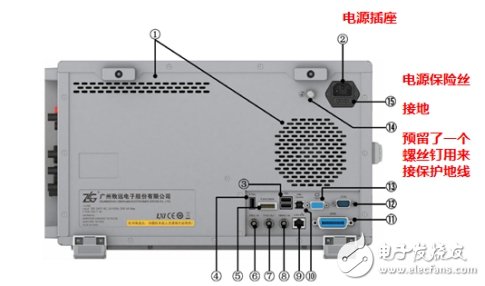
In the AC power port circuit of the instrument product, EARTH is connected to the metal casing of the product. In the event of poor grounding, there will be 110VAC high voltage on the metal casing of the product.
C2 and C3 are safety capacitors. When they fail, the breakdown will not short-circuit, but will be broken, ensuring safety.
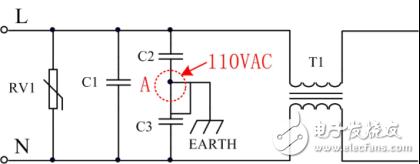
Deliberately reduce the ground wire of the PA2000mini power analyzer. At this time, the instrument is in a bad grounding state, and the chassis will be charged with 110V, which may cause electric shock!
It is recommended to use an inductive test pencil for testing.
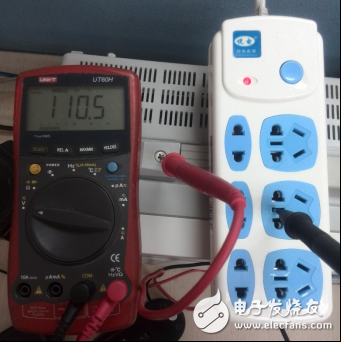
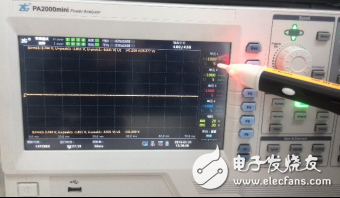
Although the power analyzer equipment is isolated between the channels, according to the physical law, a capacitor is formed between the two insulated conductors. The high-frequency signal can pass, and the grounding is poor, which will cause external interference to the inside of the machine. If the interference is too large at this time, and the machine communication is just in the important data transmission, it will affect the internal communication of the machine. The lighter will lead to inaccurate testing, and the serious result will cause the machine communication to be interrupted.
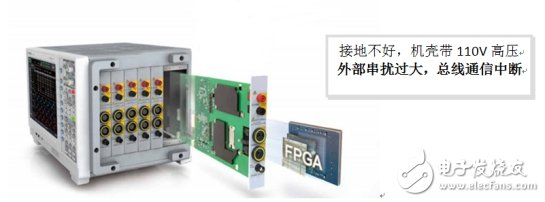
In the case of poor grounding, large-scale interference simulation of the machine will eventually lead to machine communication failure, and the PCIE communication between the host and the daughter card is abnormal.
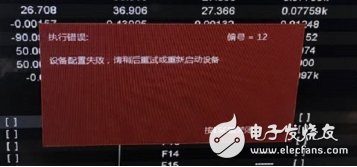
I believe that everyone has seen a certain understanding of the grounding hazards. Although we use power analyzers as examples, the equipment can be treated consistently, such as oscilloscopes and power supplies.
Instrument product grounding precautionsFor grounding hazards, we can summarize the following experience:
· The power cord uses the original power cord of the original package;
· Before powering up, please use the multimeter to confirm that the PE end of the plug or power socket is good.
· For products with protective terminals, the protective terminals must be connected to the ground;
· The grounding wire should not exceed 1m as much as possible. The thicker the grounding wire, the better.
· When multiple systems are common, try to use a single point ground without common impedance to avoid common impedance interference.
Nickel Iron Battery,Nickel Iron Alkaline Battery,Solar Battery,Nickel Iron Battery For Solar
Henan Xintaihang Power Source Co.,Ltd , https://www.taihangbattery.com